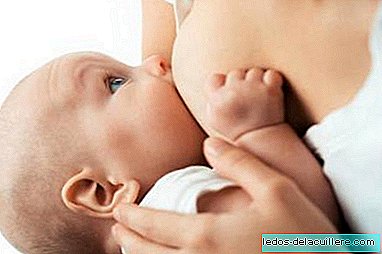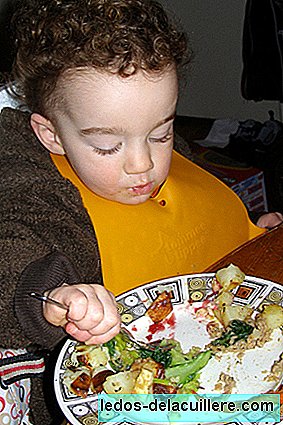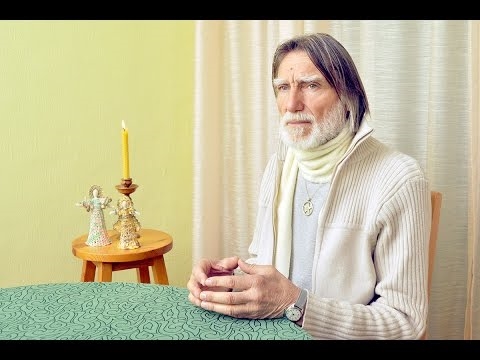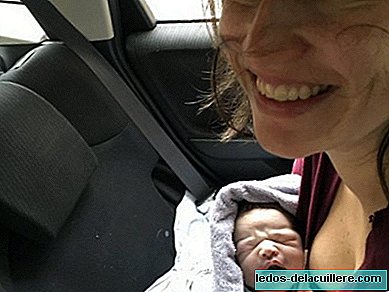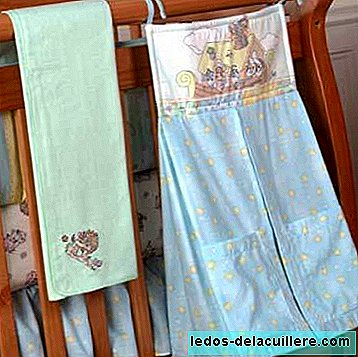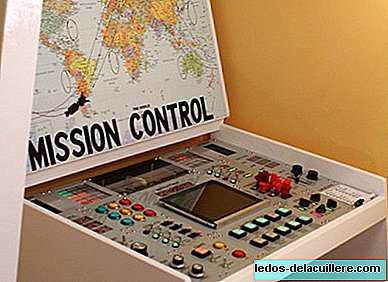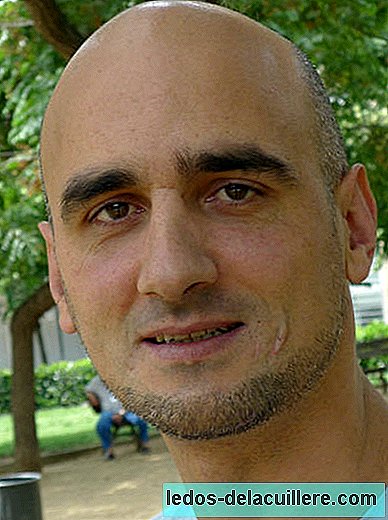
Not long ago I read a project developed in South America and it was aimed at teenagers: it talked about male identity, and it was intended to make the recipients reflect on violence against women (very present in young people, although we have young children We are not yet aware), as well as trying to change relationship dynamics.
Soon I discovered 'To be or not to be a man. Journey to the essence of male identity ' by Alberto Mena Godoy, in the text of the back cover you can read 'who is the man really ?, what is his essence ?, what does he need from the environment to grow as a child and as a healthy man ?, why does it cost us so much to relate? ' The book was released on September 17, 2012.
I convinced myself then that (as I have already mentioned on occasion) there are very interesting topics that come to me without having sought them. But without a doubt, the decision to interview Alberto was presented finding in his book a chapter on 'normalized' abuse of children.
Male identities, child abuse, do you think they have a relationship? I invite you to follow a little more to meet this therapist and author, as well as his work. Today I present the first part of an extensive interview with which we can learn and reflect, we talk about the male identity, the link between babies and mothers and we address the violence exerted by adults against children. Alberto Mena is a therapist in Psico - Corporal integration, also has experience in various educational and outreach activities such as the direction and presentation of a radio program, conferences for parents, mothers and educators. You can follow it through the blog Psycho Corporal Therapy.
Due to the male identity crisis, references are needed to serve as a guide. The reality is that men, in that sense, we are quite lacking and do what we can, both in the relationship as in the relationship with children, among other issues
Peques y Más.- I am especially interested in a chapter of the book dedicated to 'normalized' abuse of children, but we will talk a little later about this. Why a book dedicated to male identity?
Alberto Mena.- The idea of writing about man and male identity arises from my presence as a member of a psychotherapeutic group of men. After more than three years of belonging to the group and for all the experiences I lived there, I felt I wanted to write about what I had discovered. And from my training and professional base in the world of psychotherapy, I decided to write about it.
PyM.- What does it mean that male identity is in crisis? Does this have any relation to current parenting styles?
A.M.- Since the 60s of the s. XX, women revolutionize the position that until now occupied in society. It reaches its autonomy without depending so much on the husband and occupies its social and professional place. In the family sphere, we enter a new scenario in which broadly speaking, men can no longer subdue women, and women no longer want to be subdued. In turn, the man is occupying to a greater extent the private and family environment of which he was so absent for centuries.
This transformation is not more than 50 years old. From a historical perspective, this is an absolutely revolutionary fact. This whole issue has evidently had its positive part but also its negative part, especially as it relates to parenting. We will not get into it because it could lengthen me a lot, just say that at present, gender functions (I don't like talking about roles) are confused. In many cases you live in stories of power that destroy relationships. The therapeutic experience tells me that when we try to relate and bond, we face serious problems.
As for parenting, it is clear that as mammals we are we need the presence and connection with the mother, basically during the first years of our life. Our psycho-physical health depends on it. And man as a father has a very important function as well. In what has to do with male identity, the father is responsible for offering his son a healthy and constructive model of man. The male identity needs the presence of the father to be able to build.
In the new situation of man the old models no longer serve us. We have no mirrors of current man to look at. Hence the crisis of our identity. We need references to guide us. The reality is that men, in that sense, we are quite lacking and do what we can, both in the relationship as a couple and in the relationship with children, among other issues.
PyM.- You affirm that the basis of the man and the woman is given by the woman (the mother), how then does the early separation of the mother affect her because she is going to work?
A.M.- Imagine ... We live in a society that, as a result of the transformations that have taken place, as I was telling you before, is seriously harming the adults of the future who are babies and children, especially in the first years of life. This is one of the great factors that, in my view, is deranging us, not only as a society, but also as a species. A 4-month-old baby, who cannot represent herself if her mother will return or not when she leaves, feels internally abandoned. In those moments the instinct needs the unconditionality of the mother, we see it clearly in the mammals that maintain the melee contact with their young during the first years.
Hopefully, you will have the grandmother, the father or someone you trust, but the baby, who you really need in those moments to build the bond solidly, is your mother. As I point out in the book, today we see that they take 4-month-old babies to daycare at eight in the morning, and pick them up at six in the afternoon ... What kind of bonding can a creature establish that passes the Most of the day without seeing or having contact with your mother? How much pain, anxiety or anguish are you growing? How will you later connect with people?
Making a general review of paid maternity leave that states offer in the world, the predominance is mostly between 12 and 15 weeks (between 3 and 4 months). Since politicians do not do it because economic and financial elites are not interested, let's consider this issue very seriously.
In the book many issues are addressed to see the face and cross of men. With a clear and brave style that will not leave anyone indifferent, the author deepens as has not been done so far, in the most recondite and controversial facets of the masculine universe: instincts, emotions, parenting, parenthood, aggressiveness, homosexuality, gender violence, relationships, fidelity ...

PyM.- You speak in your book of violence against children, but it is surprising to discover the amount of forms of abuse that adults can get to exercise on children. Does violence have a specific origin or is it the sum of factors?
A.M.- That's right, there are many ways to mistreat children: some clearer, others more subtle, which in adulthood lead to attitudes and habits that are clearly harmful to our health. Precisely this is one of the chapters that I decided to make public in my Blog.
Of all this, what worries me most is that the abuse has normalized. Many times, he is not even questioned. Personally I observe that when a person performs a deep psychotherapeutic process and begins to see the framework of his personality, a number of more or less clear or subtle mistreatments that have damaged him begin to emerge, and that in adult life they affect him in his relationship with him Same and with people. I understand that this issue is delicate and very difficult to assimilate when one has not entered the ins and outs of his personality. But it is so, and one of my passions is to make it known.
With regard to violence, my experience is that when you treat a child well and give him what he needs, the child grows with health and consistency. And when you treat it badly, there is a much clearer tendency towards violence. The instinct of the child does not understand limits, adults are responsible for showing them. The question is how we place them. This is one of the most delicate points in our role as fathers and mothers. If we do it with violence, threats, authoritarianism, etc., that is what we are teaching them. If we have difficulties in accompanying the emotions that may arise, especially with the aggressiveness of the child, there we also have the origin of violence.
There are many factors, all of them related to some type of abuse received, which can lead to violence. Adults are responsible for seeing what happens to what we feel at a given time with our children, to be in the best possible way. We need a review of our personal history because the most normal thing is that we continue to reproduce the abuse and trauma we received when we were children.
Some time ago the news came out that there were chimpanzees, with whom we shared 98.7% of our DNA, in which it was said that they formed patrols to kill. What was not said, is that those chimpanzees had been literally beaten by humans during the previous generation. What I mean is that violence is not part of our nature. In every deep psychotherapeutic process I see how despite the damage that a person may have, and despite the destruction that at any given time can feel, what he deeply desires is that he be seen and recognized in that pain he feels and that He has hidden as he could with that violent mask.
PyM.- How does a child manifest the abuse he is subjected to in his family? Do the little ones have any way of breaking the circle?
A.M.- In their behavior, in their way of being, in their attitudes. Depending on the type of abuse, the child will manifest it clearly, or not. In subtle abuse, it is difficult to observe. The consequences usually come from adolescence and during adulthood. In the most obvious abuse it is easier to observe. The clearest signal we can observe is based on fear and withdrawal. That does not mean that a child with fear is being mistreated. There are children who by their origins and intrauterine experiences tend more towards some emotional reactions or others. A child who is well treated is really alive, has movement, feels calm, is cheerful and looks for ways to enjoy and get what he needs. When it is not, he seeks help and asks for it.
For the child, the mother and the father are everything, he needs them. As bad as they treat him, he still needs them. If the children have some way of breaking the circle, the truth is that it is complicated, unless the father or mother, as appropriate, can protect him from certain attitudes of one or another spouse. Parents have the responsibility to protect and show their faces for their children, when they are mistreated. We know how difficult it can be to educate children. If the father is not aware of the damage he may be doing, the mother may be able to see it. And vice versa. If you can talk about it and rectify some attitudes, welcome, especially for the good health of children.
There are many factors, all of them related to some type of abuse received, which can lead to violence. A review of our personal history is necessary because the most normal thing is that we continue to reproduce the abuse and traumas we received when we were children
As I have already mentioned, the interview is very extensive, therefore I invite you to continue with the second part that we will publish tomorrow, in it Alberto will talk to us about the role of the family and society in the change towards parenting and education models. violent, and we will reveal the basis of a good family relationship (among others). We will also tell you how to acquire 'To be or not to be a man. Journey to the essence of male identity ', in case you are interested in reading it.
Our guest today has been very generous dedicating part of his time, and we are (for that) very grateful, it has been a pleasure. Do not miss the continuation.


